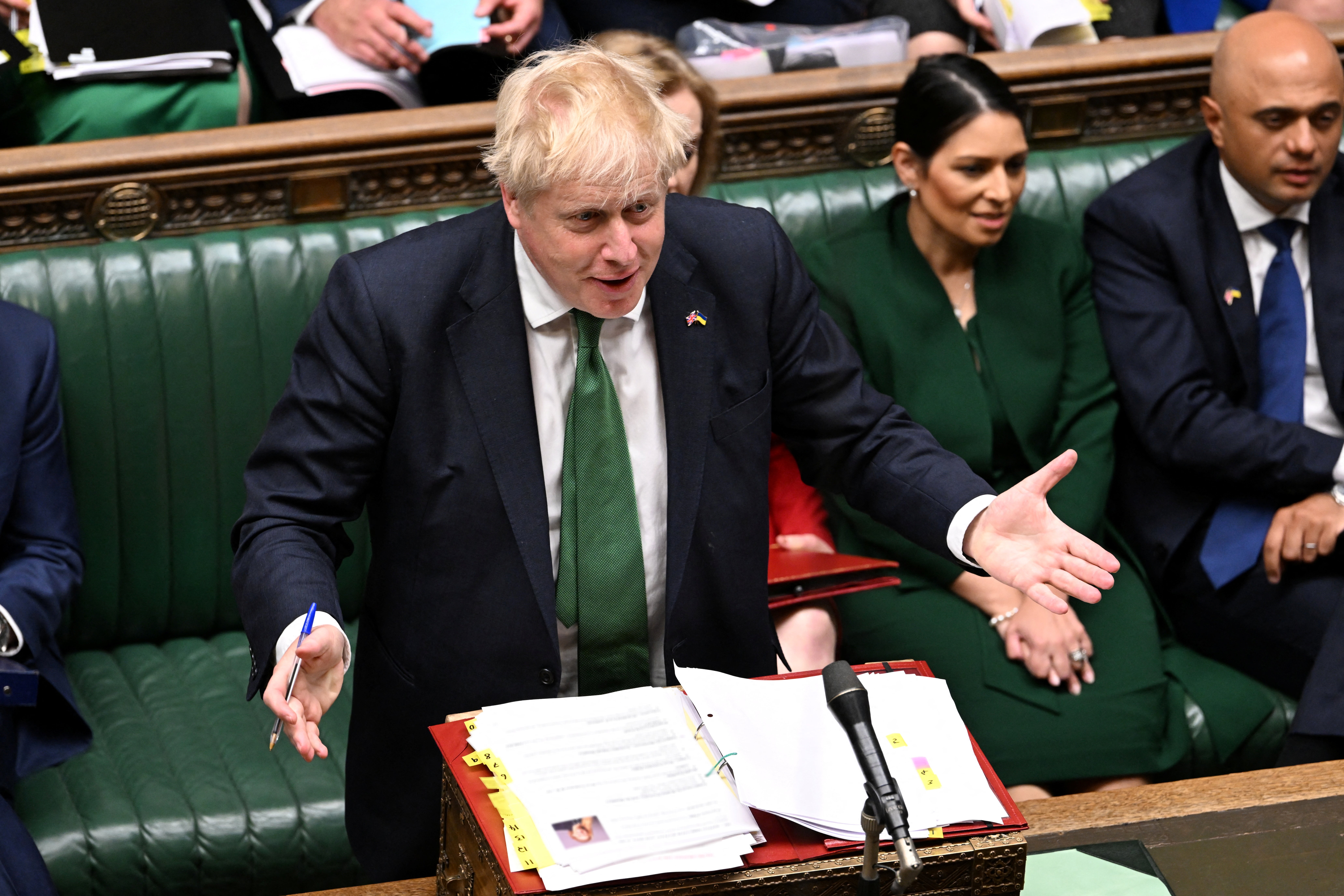Boris Johnson is bad enough now – imagine if he were president
Our politicians have done a pretty dismal job of finding party leaders in recent times, but it could be worse


Your support helps us to tell the story
From reproductive rights to climate change to Big Tech, The Independent is on the ground when the story is developing. Whether it's investigating the financials of Elon Musk's pro-Trump PAC or producing our latest documentary, 'The A Word', which shines a light on the American women fighting for reproductive rights, we know how important it is to parse out the facts from the messaging.
At such a critical moment in US history, we need reporters on the ground. Your donation allows us to keep sending journalists to speak to both sides of the story.
The Independent is trusted by Americans across the entire political spectrum. And unlike many other quality news outlets, we choose not to lock Americans out of our reporting and analysis with paywalls. We believe quality journalism should be available to everyone, paid for by those who can afford it.
Your support makes all the difference.“Absolutely nothing and no one, least of all her, is going to stop us,” Boris Johnson trumpeted at PMQs. He also said his political career had “barely begun”.
That might have been a joke. If it wasn’t, brace yourselves for political dystopia, if we’re not already there.
Those statements, the confidence vote and last week’s jubilee woke me up in a cold sweat because they raised an uncomfortable question: what if this rube were actually president? I mean, the actual president, not just someone trying to act like he’s in that position, a criticism raised by former minister Jesse Norman in a devastating critique of the prime minister.
The Tories face dismal poll ratings, a pair of potential by-election defeats, the continuation of the cost of living crisis, and the widespread feeling that their leader has no answers despite all the hot air about “resetting” a premiership which was in game-over territory almost as soon as it had started.
The finely honed Tory instinct for self-preservation, going into a long, cold and unhappy winter, will likely cause the party’s MPs to sharpen their knives again, with a rolling programme of indiscipline and disruption already being mooted, and the D-Day option of conniving a fresh, and decisive, confidence vote still on the table.
Trouble is, we face months of drift – punctuated by periodic explosions of hot air – in the interim. The country needs and deserves better than the government’s efforts being devoted not towards improving life in Britain, but towards propping up its bellyaching “Big Dog”.
But the uncomfortable truth for us republicans is that it would be much harder under a presidential system. Look at the US as an example. There are mechanisms for removing a sitting commander-in-chief, but in practical terms, it is all but impossible.
Impeachment really only requires the opposing party to hold a majority in the House of Representatives, which is quite common in the US. But you need two-thirds of the Senate to convict.
Donald Trump was impeached for abuse of power and obstruction of Congress over his attempt to solicit foreign interference to help his election bid, and over his subsequent attempts to frustrate this being investigated. The comedian John Oliver described this, and other sins, as “stupid Watergate” which is as good a sound bite as I’ve seen.
But Trump was easily acquitted by the Senate, which still refused to convict when the more serious charge of inciting an insurrection was put before it. True, he had only a week left to serve at the time. But so what?
Richard Nixon failed to survive the less stupid Watergate – although the attempt to bug the HQ of the Democratic National Committee in the Watergate building was still pretty dozy – because he resigned.
Ask yourself whether there are any circumstances under which Boris Johnson would do the same.
This is the downside of the powerful presidential system that critics like Jesse Norman regularly accuse British prime ministers of trying to usher in (it was also lobbed at both Margaret Thatcher and Tony Blair).
Norman and his colleagues can act because the British electorate does not vote directly for its leader. The calculus would be different under a presidential system, even one with better checks and balances than exist in the US (and there are no guarantees on that front).
Lots of people point to the Irish system as a possible alternative, and it has much to recommend it. There, the president has a largely ceremonial role, with limited – although still important – powers.
They have to be aged 35 or over and be nominated by either a minimum of 20 Irish parliamentarians or four local authorities. It’s suited to a respectable elder statesperson.
To keep up to speed with all the latest opinions and comment, sign up to our free weekly Voices Dispatches newsletter by clicking here
I’ve been hearing about how British politics is at a low ebb for almost my entire life, so I’ve never paid it much attention. But now? Now, I think people have a point. Our politicians have done a pretty dismal job of finding party leaders and/or prime ministers in recent times, with a succession of dismal premierships culminating in the current historic disgrace.
A presidential system would be more democratic, and it really is high time we consigned the hereditary system to the dustbin of history where it belongs. The royals might actually welcome being freed from their gilded cage.
But as things stand in Britain, even Prince Charles is almost starting to look like a better option than most of the alternatives. Almost. And that’s something I never thought I would write.
Join our commenting forum
Join thought-provoking conversations, follow other Independent readers and see their replies
Comments